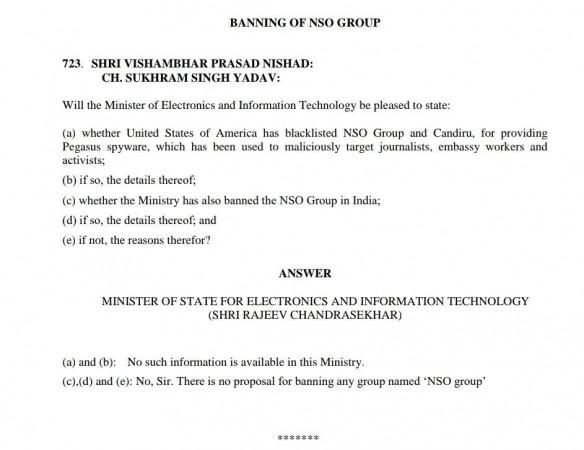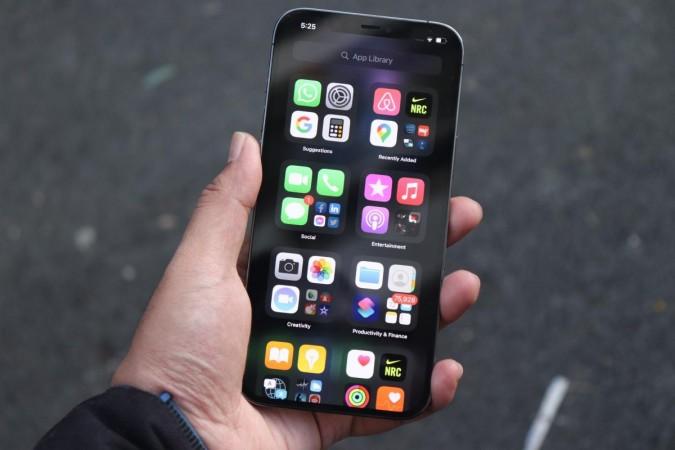The US Department of Commerce added NSO Group, along with three other foreign companies, to the "entity list", a blacklist prohibiting firms from receiving American technologies last month. The move was made after the department ruled that NSO Group engaged "in activities that are contrary to the national security or foreign policy interests of the US". But the question of whether other countries would follow America's lead remained unknown. India finally has an answer.
Pegasus, the powerful phone-hacking spyware, has been at the centre of controversy in India after reports of snooping on various high-profile individuals, including journalists and politicians, came to light. In August, Defence Ministry put on record that it had nothing to do with snooping or Israel based NSO Group Technologies.

No proposal to ban NSO Group
Building on that, two Rajya Sabha MPs from the Samajwadi Party Vishambhar Prasad Nishad and Sukhram Singh Yadav sought Centre's response on banning NSO Group and Candiru, another Israeli firm, in India. The Minister of State for Electronics and Information Technology of India, Rajeev Chandrasekhar, has responded saying "there is no proposal for banning any group named NSO Group."

NSO Group on tech giants' radar
In response to the US adding the NSO Group to the black-list, the Israel-based company expressed its dismay and said that it would work to reverse the ban. "Our technologies support US national security interests and policies by preventing terrorism and crime," the company said.

Besides US, Apple has filed a lawsuit against NSO Group, seeking a permanent injunction to ban NSO Group from using any Apple software, services or devices. The company admitted that a small number of its users may have been targeted by a NSO Group's exploit to install Pegasus on Apple devices. Apple follows WhatsApp and its parent company Meta (formerly Facebook) in suing Pegasus spyware maker NSO Group.

















